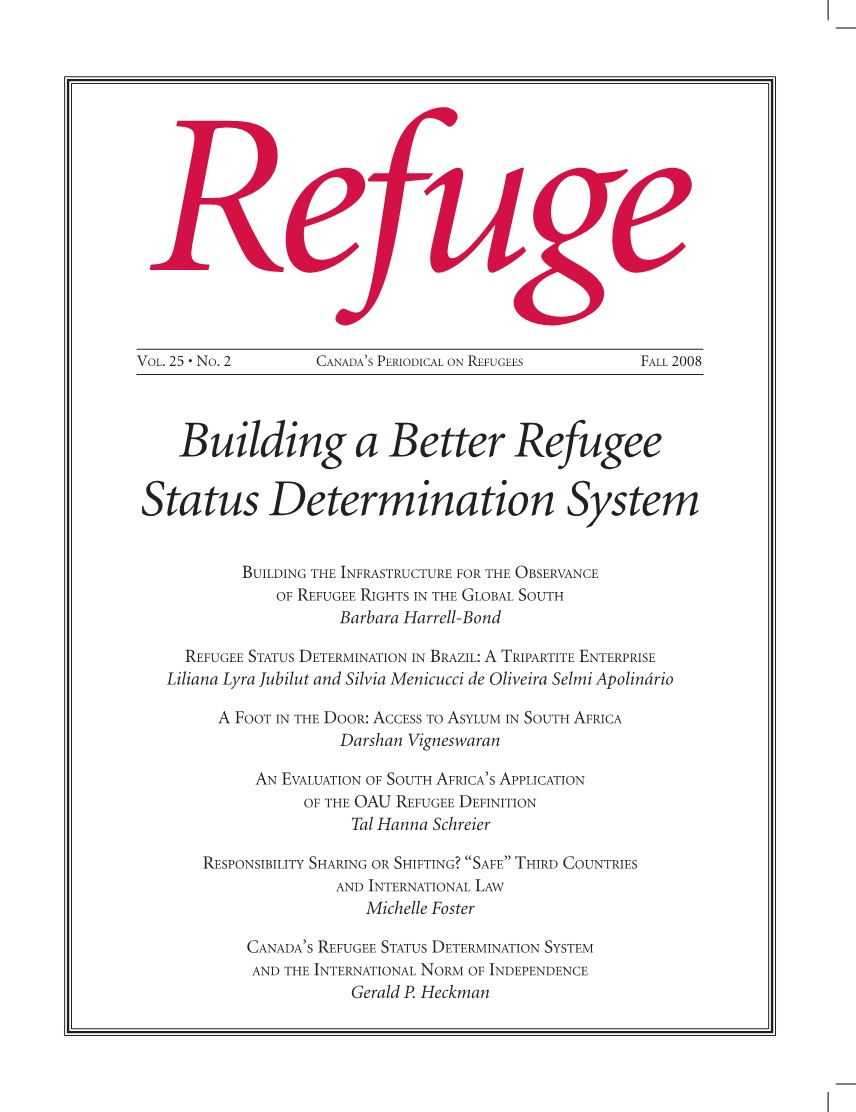The Many Faces of "Prima Facie": Group-Based Evidence in Refugee Status Determination
DOI:
https://doi.org/10.25071/1920-7336.26037Keywords:
Africa, Europe, refugee status determination, group determination, refugee law, prima facieAbstract
The majority of the world’s refugees have secured a legal status without resort to an individual examination of their claims. The practice of “group” determination, particularly in Africa, is interesting in several aspects, not least in that it allows a real-time assessment of a need for international protection. While these positive aspects should not be lost as many jurisdictions in the developing world are equipping themselves with individual asylum procedures, it is equally important to clarify, and hopefully to harmonize, the procedural and evidentiary standards applicable to group determination. How presumptions operate—including their rebuttal or removal—is a question worth examining, and not only with regard to refugee status determination (RSD) in mass influx situations. Legal presumptions and other evidentiary shortcuts have also been introduced into individual RSD procedures in industrialized states. These include mechanisms that are highly problematic from a protection point of view, such as the “safe country of origin” presumption of a “manifestly unfounded” claim. However, administrative bodies and courts have also, from time to time, used some form of prima facie admission of evidence in order to lighten the burden of asylum applicants, while speeding up the RSD process. Furthermore, this article argues that extralegal presumptions, based on implicit value judgments about national or subnational groups, almost invariably colour the interviewing and decision-making processes in individual cases. This finding makes it all the more necessary: to (i) to re-assess the significance of “risk-group affiliation” as an element of the refugee definition; and (ii) formally recognize the role of evidentiary shortcuts in RSD, and recommend appropriate standards for their operation.
Metrics
Downloads
Published
How to Cite
Issue
Section
License
Copyright (c) 2008 Jean-François Durieux

This work is licensed under a Creative Commons Attribution-NonCommercial 4.0 International License.
Refuge authors retain the copyright over their work, and license it to the general public under the Creative Commons Attribution-Non Commercial License International (CC BY-NC 4.0). This license allows for non-commercial use, reproduction and adaption of the material in any medium or format, with proper attribution. For general information on Creative Commons licences, visit the Creative Commons site. For the CC BY-NC 4.0 license, review the human readable summary.







